Fleurs du Mal Magazine


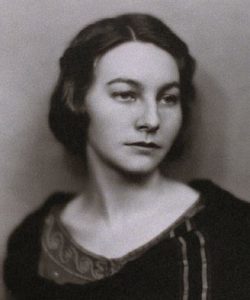
With Child
Now I am slow and placid, fond of sun,
Like a sleek beast, or a worn one:
No slim and languid girl—not glad
With the windy trip I once had,
But velvet-footed, musing of my own,
Torpid, mellow, stupid as a stone.
You cleft me with your beauty’s pulse, and now
Your pulse has taken body. Care not how
The old grace goes, how heavy I am grown,
Big with this loneliness, how you alone
Ponder our love. Touch my feet and feel
How earth tingles, teeming at my heel!
Earth’s urge, not mine,—my little death, not hers;
And the pure beauty yearns and stirs.
It does not heed our ecstacies, it turns
With secrets of its own, its own concerns,
Toward a windy world of its own, toward stark
And solitary places. In the dark,
Defiant even now, it tugs and moans
To be untangled from these mother’s bones.
Genevieve Taggard
(1894 – 1948)
With Child
• fleursdumal.nl magazine
More in: # Classic Poetry Archive, Archive S-T, Archive S-T
Finalist for the 2023 Pulitzer Prize Listed in The Boston Globe’s Best Poetry Books of 2022.
Longlisted for the PEN/Voelcker Award in PoetryAmerican Book Award-winning poet dg okpik’s second collection of poems, Blood Snow, tells a continuum story of a homeland under erasure, in an ethos of erosion, in a multitude of encroaching methane, ice floe, and rising temperatures.
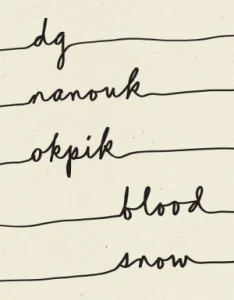 Here, in a true Inupiaq voice, dg okpik’s relationship to language is an access point for understanding larger kinships between animals, peoples, traditions, histories, ancestries, and identities.
Here, in a true Inupiaq voice, dg okpik’s relationship to language is an access point for understanding larger kinships between animals, peoples, traditions, histories, ancestries, and identities.
Through an animist process of transfiguration into a Shaman’s omniscient voice, we are greeted with a destabilizing grammar of selfhood. Okpik’s poems have a fraught relationship to her former home in Anchorage, Alaska, a place of unparalleled natural beauty and a traumatic site of devastation for Alaskan native nations and landscapes alike. In this way, okpik’s poetry speaks to the dualistic nature of reality and how one’s existence in the world simultaneously shapes and is shaped by its environs.
dg nanouk okpik was born and spent much of her life in Anchorage, Alaska. She graduated from Salish Kootenai College with an AFA in Liberal Arts and Liberal Studies, and later attended the Institute of American Indian Arts, graduating with an AFA and a BFA in Creative Writing before receiving her MFA in Creative Writing from Stonecoast College. okpik has won the Truman Capote Literary Award, the May Sarton Award, and an American Book Award for her first book, Corpse Whale (University of Arizona Press, 2012).
Blood Snow
by Dg Nanouk Okpik
Publisher: Wave Books
Publish Date: October 18, 2022
Pages 96
Language: English
Paperback
EAN/UPC: 9781950268634
BISAC Categories:
Native American
Women Authors
Price $18.00
• fleursdumal.nl magazine
More in: #Archive Native American Library, #Editors Choice Archiv, #Modern Poetry Archive, - Book News, - Bookstores, Archive O-P, Archive O-P
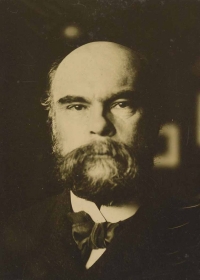
Nevermore
Souvenir, souvenir, que me veux-tu ? L’automne
Faisait voler la grive à travers l’air atone,
Et le soleil dardait un rayon monotone
Sur le bois jaunissant où la bise détone.
Nous étions seul à seule et marchions en rêvant,
Elle et moi, les cheveux et la pensée au vent
Soudain, tournant vers moi son regard émouvant :
« Quel fut ton plus beau jour ! » fit sa voix d’or vivant
Sa voix douce et sonore, au frais timbre angélique.
Un sourire discret lui donna la réplique,
Et je baisai sa main blanche, dévotement.
– Ah ! les premières fleurs qu’elles sont parfumées
Et qu’il bruit avec un murmure charmant
Le premier oui qui sort de lèvres bien-aimées !
Paul Verlaine
(1844 – 1896)
Mon rêve familier
Poèmes saturniens
Photo: Willem Witsen, 1892
• fleursdumal.nl magazine
More in: #De Vijftigers Archive, Archive U-V, Archive U-V, Verlaine, Paul
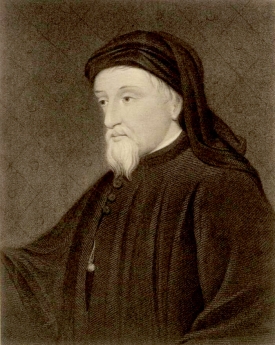
Since I From Love
Since I from Love escaped am so fat,
I ne’er think to be in his prison ta’en;
Since I am free, I count him not a bean.
He may answer, and saye this and that;
I do no force, I speak right as I mean;
Since I from Love escaped am so fat.
Love hath my name struck out of his slat,
And he is struck out of my bookes clean,
For ever more; there is none other mean;
Since I from Love escaped am so fat.
Geoffrey Chaucer
(1343 – 1400)
Since I From Love
• fleursdumal.nl magazine
More in: Archive C-D, Archive C-D, Geoffrey Chaucer
To Star the Dark is the first new collection of poems by Irish poet Doireann Ní Ghríofa, following her acclaimed prose bestseller A Ghost in the Throat
The poems in Doireann Ní Ghríofa’s much-anticipated new collection To Star the Dark take place in hospitals, in cellars, in Parisian parks and American laundromats, inside our screens and beyond them.
Poems of blood and birdsong, of rain and desire, of aftermath and ambivalence, each spoken by a voice, which – like the starlings – sings, at once, both past and present.
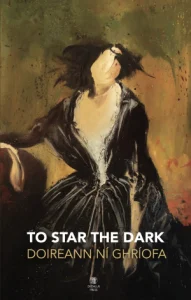 DOIREANN NÍ GHRÍOFA is a bilingual Irish poet and essayist, born in Galway in 1981, living in Cork for many years. She is author of six critically-acclaimed books of poetry, each a deepening exploration of birth, death, desire, and domesticity.
DOIREANN NÍ GHRÍOFA is a bilingual Irish poet and essayist, born in Galway in 1981, living in Cork for many years. She is author of six critically-acclaimed books of poetry, each a deepening exploration of birth, death, desire, and domesticity.
Ní Ghríofa’s first book in English, Clasp (Dedalus Press, 2015) won the Rooney Prize for Irish Literature, the Michael Hartnett Poetry Award, and was shortlisted for the Irish Times Poetry Award. A Book of the Year in both The Irish Times and The Irish Independent, Lies (Dedalus Press, 2018), draws on a decade of Ní Ghríofa’s Irish language poems, accompanied by her own translations.
Doireann Ní Ghríofa is also author of the prose bestseller A Ghost in the Throat (Tramp Press, 2020) which finds the eighteenth-century poet Eibhlín Dubh Ní Chonaill haunting the life of a contemporary young mother, prompting her to turn detective. Ní Ghríofa’s artistic practice encompasses cross-disciplinary collaborations, fusing poetry with film, dance, music, and visual art, and her work has been commissioned by institutions such as The Poetry Society (Britain), Poetry Ireland, The Embassy of Ireland in Britain, and the Department of Foreign Affairs.
Further awards for Ní Ghríofa’s work include a Lannan Literary Fellowship (USA), a Seamus Heaney Fellowship (Queen’s University), and the Ostana Prize (Italy), among others.
To Star the Dark (Poetry)
By Doireann Ní Ghríofa
70 pp.
2021
Dedalus Press
ISBN 9781910251874 (hardback)
ISBN 9781910251867 (paperback)
€20.00 hardback
€12.50 paperback
• fleursdumal.nl magazine
More in: - Book News, - Bookstores, Archive G-H, Archive G-H, Doireann Ní Ghríofa, Ghríofa, Doireann Ni
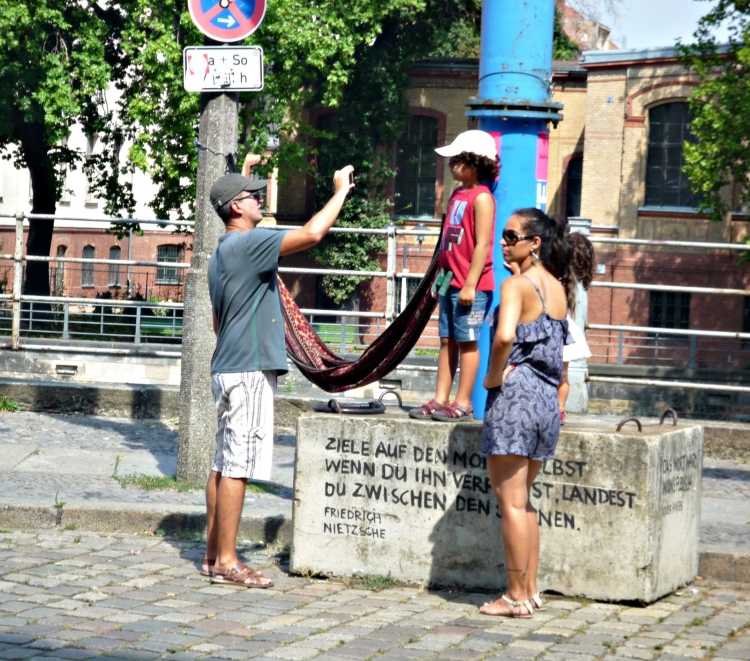
freda kamphuis
boven nietzsche
• fleursdumal.nl magazine
More in: Archive K-L, Freda Kamphuis, Freda Kamphuis, Friedrich Nietzsche, Galerie Deutschland, Photography
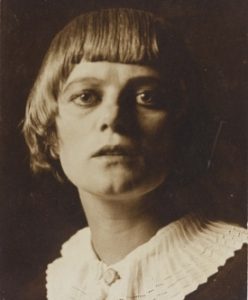
Nach dem Cabaret
Ich gehe morgens früh nach Haus.
Die Uhr schlägt fünf, es wird schon hell,
Doch brennt das Licht noch im Hotel.
Das Cabaret ist endlich aus.
In einer Ecke Kinder kauern,
Zum Markte fahren schon die Bauern,
Zur Kirche geht man still und alt.
Vom Turme läuten ernst die Glocken,
Und eine Dirne mit wilden Locken
Irrt noch umher, übernächtig und kalt.
Lieb mich von allen Sünden rein.
Sieh, ich hab manche Nacht gewacht.
Emmy Hennings
(1885 – 1948)
Nach dem Cabaret
• fleursdumal.nl magazine
More in: Archive G-H, Archive G-H, Emmy Hennings, Hennings, Emmy, Performing arts
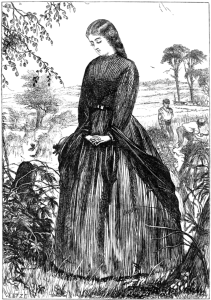
The Seasons
Spring—and her heart is singing
A song full of joyous cheer;
For each brightening day seems bringing
The hope of her life more near.
Summer—her heart is waiting;
Its dream is yet unfulfilled:
But her trust knows no abating,
Though the Spring’s glad song is stilled.
Autumn—her heart is burning
With the fever of restless fears;
And the darkened days returning
Bring her no relief save tears.
Winter—her heart is broken:
The struggles of Hope are o’er;
But the love that was here unspoken
Will be hers where hearts bleed no more.
Evelyn Forest
(Pen name of Anne Pares)
(? – ?)
The Seasons (1862-63)
Illustration: Frederick Eltze (1836–1870)
• fleursdumal.nl magazine
More in: # Classic Poetry Archive, Archive E-F, Archive E-F, Archive O-P, Archive O-P, Natural history
Joyce Mansour (1928–1986), a Syrian Jewish exile from Egypt, was born in England.
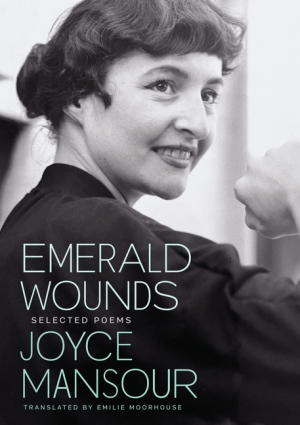 She became a well known female poet, author of 16 books of poetry, as well as a number of important prose and theatre pieces.
She became a well known female poet, author of 16 books of poetry, as well as a number of important prose and theatre pieces.
Mansour was 25 years old when she published her first book in Paris in 1953.
Her fierce, macabre, erotically charged works caught the eye of André Breton, who welcomed her into his Surrealist group and became her lifelong friend and ally.
Despite her success in surrealist circles, her books received scant attention from the literary establishment, which is hardly surprising since Mansour’s favorite topics happened to be two of society’s greatest fears: death and unfettered female desire.
She lived in Paris, France until her death in 1986 at the age of 58.
Now, over half a century later, Mansour’s time has come. Emerald Wounds collects her most important work, spanning the entire arc of her career, from the gothic, minimalist fragments of her first published work to the serpentine power of her poems of the 1980s.
In fresh new translations, Mansour’s voice surges forth uncensored and raw, communicating the frustrations, anger, and sadness of an intelligent, worldly woman who defies the constraints and oppression of a male-dominated society. Mansour is a poet the world needs today.
“You know very well, Joyce, that you are for me –and very objectively too– the greatest poet of our time. Surrealist poetry, that’s you.” –André Breton
“A woman created the sun
Inside her
And her hands were beautiful
The earth plunged beneath her feet
Assailing her with the fertile breath
Of volcanoes “
Emerald Wounds: Selected Poems
by Joyce Mansour (Author)
Garrett Caples (Editor)
Emilie Moorhouse (Translator)
Published by City Lights
ISBN: 9780872869011
July 25, 2023
217 pages
Paperback
26,99 euro
• fleursdumal.nl magazine
More in: #Experimental Poetry Archive, - Book News, - Bookstores, Archive M-N, Archive M-N, Surrealism, SURREALISM, Surrealisme
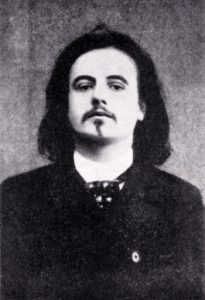
L’Homme à la hache
D’après et pour P. Gauguin
A l’horizon, par les brouillards,
Les tintamarres des hasards,
Vagues, nous armons nos démons
Dans l’entre-deux sournois des monts.
Au rivage que nous fermons
Dome un géant sur les limons.
Nous rampons à ses pieds, lézards.
Lui, sur son char tel un César
Ou sur un piédestal de marbre,
Taille une barque en un tronc d’arbre
Pour debout dessus nous poursuivre
Jusqu’à la fin verte des lieues.
Du rivage ses bras de cuivre
Lèvent au ciel la hache bleue.
Alfred Jarry
(1873-1907)
L’Homme à la hache
D’après et pour P. Gauguin
(1894)
• fleursdumal.nl magazine
More in: Archive I-J, Archive I-J, Jarry, Alfred, SURREALISM, Surrealism, Surrealisme
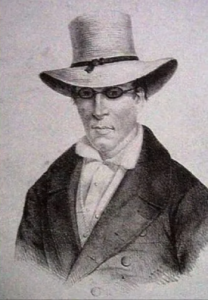
Salazie
Oh ! dis-moi donc, enfant de la race créole,
D’où vient que pour nos bords, ton cœur est sans amour?
D’où vient que faible encor, ta première parole,
Dans l’avenir douteux, semble arrêter le jour
D’un départ sans retour?
Pourquoi, lorsque ta mère, offrant ton brun visage
A la splendeur d’un ciel si poétique à voir,
Insoucieux de lui, ton oeil ardent et noir,
A l’horizon lointain, demande une autre plage,
Ton rêve et ton espoir?
France ! France ! voilà ce que ton âme crie:
Eh ! la France, dis-moi, vaut-elle ta patrie?
De ton brillant soleil le sien est-il rival?
Son ciel est-il plus pur, sa nature plus belle?
Lorsque l’hiver partout jette la faim cruelle,
Dans tes fertiles champs, le joyeux cardinal,
En vain, pour ses petits, va-t-il lasser son aile?
Non, non, jamais l’hiver, déroulant son linceul,
N’affligea nos climats de famine et de deuil;
De nos bois de palmiers la robe est éternelle;
Le tarin chaque année y retrouve son nid,
Et l’oranger, si cher aux amours de Parny,
A tous nos beaux soleils offrent une fleur nouvelle.
Mais, ingrat, le dédain te mord et brûle au front,
Viens, suis-moi, fuis ces lieux où l’Océan tranquille,
Caresse avec amour les grèves de notre île;
Vois-tu, bien loin, là-bas, ce gigantesque mont,
Dont le front chauve et gris en trois cônes s’effile?
De son humide sein, immense réservoir,
Trois rivières, trois sœurs s’échappent sans se voir,
Et le chasseur hardi, seul, debout sur ces cimes,
Voit serpenter leurs lits creusés dans les abîmes.
Salazie à ses pieds, comme un riant Eden,
Sommeille en attendant les beaux jours de juin.
C’est là que ma muse fidèle,
Fière de chanter en chemin,
T’invite à voler avec elle.
Sur le léger Maho consens à t’appuyer.
Laissons de Saint-André la ville pluvieuse ;
Quittons les vastes champs où la canne orgueilleuse,
Sans pitié détrôna le vieux giroflier;
Regarde de ce pont la légère structure;
Il s’élance, hardi, d’un bord à l’autre bord;
Et le frisson au cœur, le passant y mesure
L’espace qui, sous lui, semble un gouffre de mort.
Là, comme un éternel musée
Qui s’ouvre aux yeux du voyageur,
La nature déroule, imposante et bronzée,
De sa création la pompe et la grandeur!
Là, si ta veine émue est pleine encor de sève,
Si ton regard de nain peut voir et mesurer,
Si d’un sublime amour ton cœur peut s’enivrer,
Contemple, admire et rêve…
Mais d’un vol plus rapide, effleurons ces vallons,
Où, par endroit dans la clairière,
Une blanche fumée, ondulant en flocons,
Trahit du Salazien la tente hospitalière.
Saluons, en passant, ces superbes pitons
Qu’une vapeur bleuâtre offre à sa transparence.
La royale fougère y suspend ses festons,
Et sur leurs flancs moussus le palmier balance.
Contemplant ces torrents qui blanchissent leurs bords,
Et ces ponts suspendus, et ces gorges profondes,
Où l’on n’entend jamais que le long bruit des ondes
Qui tombent en cascades et grondent en accords!
Ne te semble-t-il pas dans ce chœur d’harmonies,
Ouir les grandes voix d’invisibles génies?
Mais poursuivons, sans bruit dans ces bois parfumés,
Où le vert framboisier défend ses fruits aimés;
Où le Natte géant jette une ombre suprême,
Où le Fanjan élance un coquet diadème;
Et tantôt dans la vallée, échappant à l’ombrage,
Arrivons sans fatigue à ces frais ermitage
Assis au bord de l’eau.
Vois s’ouvrir après lui ce cirque granitique,
Sublime enfantement d’un cataclysme antique,
Où telle qu’une fleur dans un casque d’airain,
Marzas sourit au pèlerin;
Laisse-la reposer dans l’ombre
Des citronniers groupés sans nombre,
Et contemple avec moi ce grand panorama,
Tout hérissé de pics à la face angulaire.
Oh ! quelle forte main, en ligne circulaire,
Les fondit et les rassembla!
Parlez, répondez-moi, vieux colosses de pierre:
Êtes-vous d’un volcan les travaux infinis,
Ou les noirs ossements de ces géants punis
Pour avoir, jusqu’aux cieux, porté leur tête altière?
D’un temple surhumain êtes-vous les débris,
Ou d’un monde inconnu les ébauches sublimes?
De la destruction les terribles esprits,
Vous ont-ils laissés là, comme les millésimes
D’un passé merveilleux par le néant surpris?
Il semble au voyageur qui, muet, vous admire,
Que debout sur vos fronts un Dieu passe et respire!
Oh ! que j’aime à vous voir lorsque Mars orageux
Vous a longtemps cachés sous ses brumes compactes,
Vous reparaissez tout frileux,
Et blancs de mille cataractes!
Mais je vois Bé-Massoum, Anchaing et Cimandefs,
Qui se dressent là-bas, semblables à trois chefs.
Faisons encore trois pas ; ah ! voilà Salazie,
La voilà sous nos yeux, fraîche de poésie!
Salut, Sainte oasis ! Toi, Piton, son époux,
Qui la gardes de loin comme un vieillard jaloux,
Salut à la blanche couronne,
Dont la nue au front t’environne!
Salut au moins, en cheveux blancs
Qui prie à genoux sur tes flancs!
Je te revois, source chérie,
Comme on revoit une patrie;
Car, pour celui qui souffre et gémit ici-bas,
La patrie est aux lieux où la douleur n’est pas!
Trois fois de ton versant j’ai vu le triple étage,
Peupler ses toits joyeux de frères et d’amis;
Car, là comme tes jours, le cœur est sans nuage,
Et l’égoïsme affreux ne fut jamais admis!
Sous ton beau ciel sans haine et sans envie,
La joie au cœur on vit d’une autre vie;
Et bien souvent ton orgueilleux rempart
Compta les pleurs répandus au départ!
Oh ! tu n’es plus ce bienfait inutile,
Au fond des bois, si longtemps rejeté!
Chaque saison voit un peuple débile,
Boire à tes eaux la force et la santé;
Oui, le bonheur te charme, ô ma jouvence!
Ton gai séjour s’éveille au bruit des jeux,
Et ta fontaine, au cœur du malheureux
Apporte au moins une douce espérance!
Ah ! puisses-tu comme un rayon de miel,
Toujours t’offrir à ceux qui, sur la terre,
Ne boivent plus qu’à la coupe de fiel!
Eugène Dayot
(1810-1852)
Salazie
• fleursdumal.nl magazine
More in: Archive C-D, Archive C-D, Dayot, Eugène, Leprosy

freda kamphuis
the bearable lightness of being
• fleursdumal.nl magazine
More in: Archive K-L, Freda Kamphuis, Freda Kamphuis, Kamphuis, Freda, Natural history, Photography, Surrealisme
Thank you for reading Fleurs du Mal - magazine for art & literature